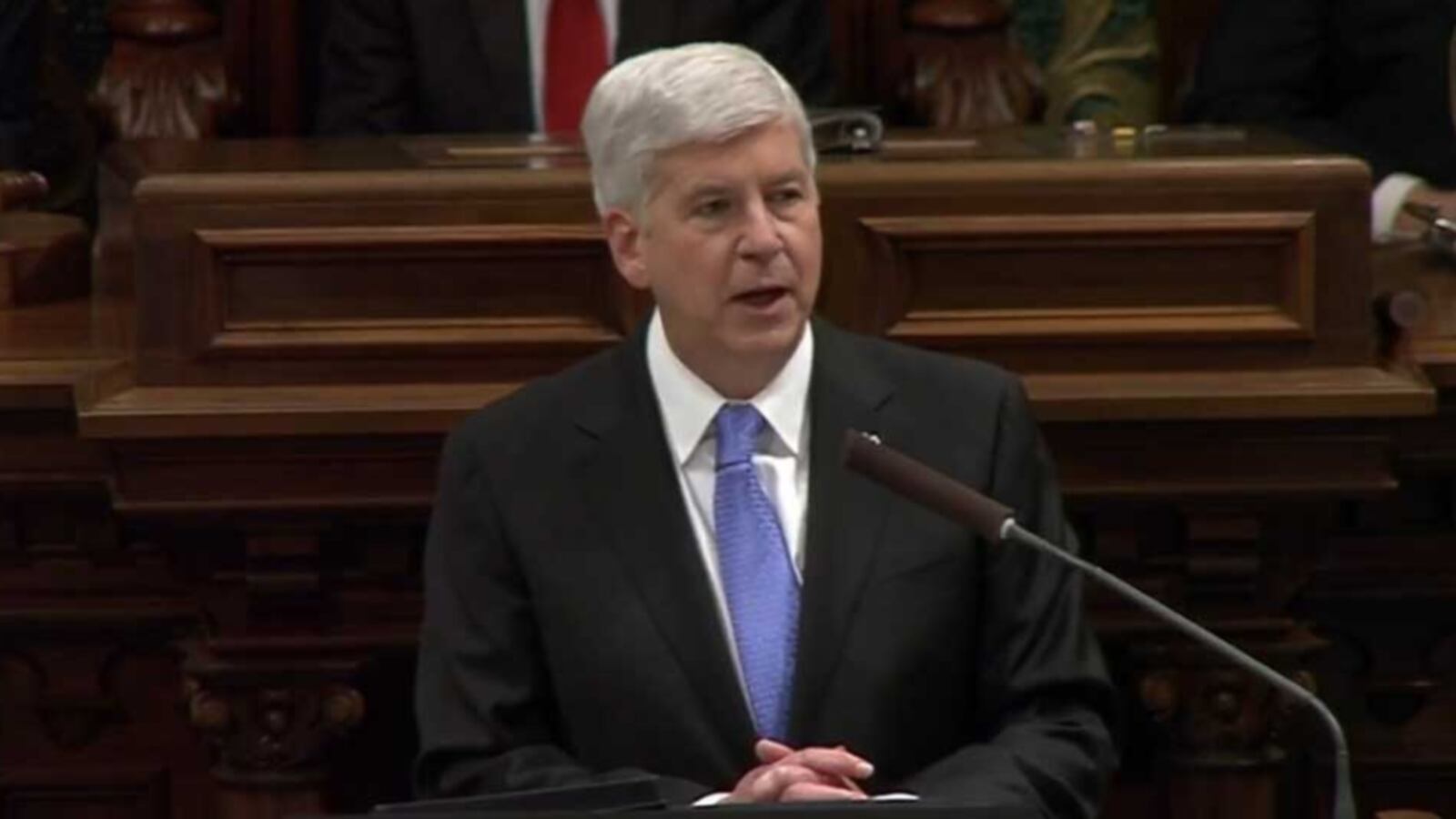Test results released on Tuesday suggest that 14 Detroit schools are not on track to meet student achievement targets set last year to spare them from closure by the state.
That news came on the same day as the Michigan Legislature’s latest attempt to ratchet up the consequences for schools that fail to meet those targets. The state budget sent to Gov. Rick Snyder’s desk on Tuesday would require the closure or “reconstitution” of schools that don’t fulfill their partnership agreements – spelling potentially dire consequences for dozens of schools in the Detroit Public Schools Community District. Under the “partnership” agreement, the district is required to make progress towards academic goals, measured at 18 months and 36 months. Principals have already begun buckling down.
But a document presented to the school board Tuesday night shows that 14 elementary and middle schools in the district are not on pace to meet those goals.
Midyear test results suggest that most of the schools saw “minimal growth” in math and reading, while only half of the schools saw improvements in third-grade reading, according to the document.
But those numbers don’t tell the whole story, said Randy Liepa, superintendent of the Wayne RESA, a countywide education agency that is helping the district meet state targets. He said a curriculum overhaul announced this year, one of several districtwide changes, won’t begin to pay off until next year.
“That’s what they’ve been about this year, is changing systems,” Liepa said, adding: “They have to implement things before they can see improvement.”
Superintendent Nikolai Vitti also noted that the test scores cited in Tuesday’s report don’t reflect schools’ ability to meet the benchmarks laid out in their partnership agreements.
Based on the data alone, “it would be inappropriate to signal success or failure of achieving the goals stated in the agreement,” he said in a statement. “We are confident in our partnership plans and believe that we will meet the academic goals set when the deadline arrives.”
The stakes for his district — already high — could rise further.
If Snyder approves the proposed budget, it would mark another twist in the debate over what to do about Michigan’s lowest-performing schools. It would be felt disproportionately by Detroit’s main district, where more than half of schools — 58 in all — are covered by partnership agreements, and thus could face closure within three years.
The agreements were championed by former state Superintendent Brian Whiston, who sought a compromise after a plan to close dozens of troubled schools was aborted in the face of lawsuits and political opposition. Whiston died last month.
The agreements didn’t clearly spell out the consequences of failure, angering Republican lawmakers who pointed to a clause in the state’s $617 million bailout mandating the closure of Detroit schools that ranked among the worst in the state for three years in a row. Now, pressure from those legislators threatens to cut into the time Vitti says he needs for a district turnaround.
Snyder could refuse to sign the budget in its current form. If he signs it, the ill-defined option of “reconstitution” could still leave some wiggle room for schools that don’t meet the state-imposed benchmarks.
LaMar Lemmons, a Detroit board member, called the targets built into the district’s partnership agreement “subjective,” saying the future of the district’s struggling schools will depend on the Legislature, not on their academic performance.
“It all depends on the politics of Lansing,” Lemmons told Chalkbeat. He recently filed to run for state Senate.

